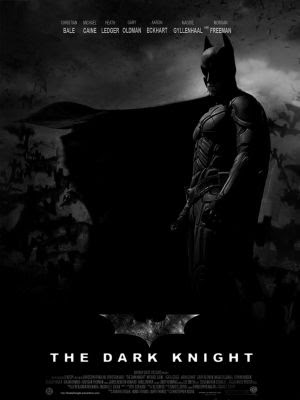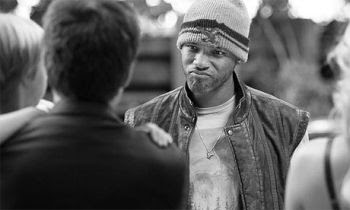 Let's hold off the stuff about superheroes assaulting their mothers for a while. Here's something long overdue on this blog. I've simply been doing too much movie stuff in the real world that I've sort of lost momentum here in cyberspace.
Let's hold off the stuff about superheroes assaulting their mothers for a while. Here's something long overdue on this blog. I've simply been doing too much movie stuff in the real world that I've sort of lost momentum here in cyberspace.
It's John Woo's Red Cliff (Chi Bi) I'm talking about. There really are two main issues here regarding the timeliness (or not) and effectiveness of this film. Firstly, and foremost I think, is the fact that this is Woo's Asian comeback. He was perhaps the first Hong Kong director (I might be wrong, so kick me in the nuts if I am) of his period to head to Hollywood in search of greener pastures and bigger budgets. It was a really exciting prospect at the time, of having Woo making more of his bullet-ballet movies in the scale of Hollywood. Hard Target notwithstanding, Face/Off was the real result of that marriage.
Pretty soon, everyone else followed suit - Chow Yun-fat, Jackie Chan, Jet Li, Michelle Yeoh, Donnie Yen, Ronny Yu, Yuen Wo-ping, even Chen Kaige. It was an exciting time, especially after Ang Lee opened the gates for Asian films with Crouching Tiger Hidden Dragon.
Just when we thought, ya, this is it, then things started to look not so good. Something was going wrong. The movies, the performances, everything was becoming lacklustre. On the surface, it looked like Hollywood was swallowing up the talent and spewing out run-of-the-mill results. Of course, beneath, it was anyone's guess what was going wrong. But you know, if you take char kuey teow to America, and you put mushrooms, spaghetti sauce and meatballs in it, it's not going to taste quite the same as the char kuey teow in Asia.
In the end, one by one, they started to come home to Asia. They started to make good movies again, reclaiming their mojo. And when one of the guys who was among the earliest to take to the migration, returned as well, and was going to make an historical epic based on one of the most famous Chinese historical, cultural and literary stories, it was really cause for celebration.
Secondly, the trend of Asian big-budget epics is reaching an almost ridiculous level. We've been inundated with them, and in the last months alone, we've had Peter Chan's The Warlords, the Andy Lau-starrer Three Kingdoms: Resurrection Of The Dragon and An Empress And The Warriors. And as we all know about those things called trends, they eventually combust, implode or just simply deflate into nothingness. And we'll all look back with a little embarrassment.
Perhaps if Red Cliff had come at an earlier time, it would have been easier to digest and appreciate. Had there not been an endless supply of such big epics, Red Cliff would have been something of a wonder for Asia. But then, we are arguing against time and its unstoppable flow, and the jetsam and flotsam that inevitably get carried by its currents. And that's a void argument.
The real concern is that big epics need a focused and intimate story at its heart, and the sprawling epic images and feel need to have a central purpose. The Last Emperor's grandiosity frames its titular character, and even imprisons him, becoming an essential device in the storytelling. In Zhang Yimou's Hero, it informed the struggle of a few individuals against a larger scheme of things, and underlined that battle, making the futility of it all more pronounced.
Red Cliff's only sole purpose for its epic scale, seems to be to bend over backwards in fearful respect for its source material; a well-known, widely read, endlessly studied portion of Chinese history and culture. This fervour to honour the legendary source material with an attempt to emulate its grand scale drowns out every other reason there may be for undertaking such a huge endeavour. In the end, it becomes an epic just for the sake of making an epic, visual grandeur solely to impress the eyes.
Yet, it's certainly difficult not to want to welcome back one of Asia's most important action filmmakers, and to recognise the once-lost vigour returned in the form of wild action and characters making cool poses more than actually engaging in combat. It's these things we love and missed. At least Woo does give us that much, but whether that is enough to overcome its too-apparent need to wow us visually, it really depends on how much you've actually missed the John Woo who made Hong Kong movies and tired of the one who made Hollywood assembly-line ones.
And in Red Cliff, it's a very close race between the two. So close, it's almost a photo finish.
 So this and last week, the world was abuzz with the news of the disappearance of one Tony Jaa, international action superstar. One day he was on the set of Ong Bak 2, directing and acting, and the next, he had gone into the jungle to meditate. After that, he became something like Bigfoot and Elvis, reports of him being spotted in various places popping up like mushrooms. Even Variety picked up the story, and that's got to be important. His producer held a teary-eyed press conference begging Tony to come back, please come back. And lo and behold, today it's reported that Tony appeared on a TV show and claimed he never abandoned the movie at all.
So this and last week, the world was abuzz with the news of the disappearance of one Tony Jaa, international action superstar. One day he was on the set of Ong Bak 2, directing and acting, and the next, he had gone into the jungle to meditate. After that, he became something like Bigfoot and Elvis, reports of him being spotted in various places popping up like mushrooms. Even Variety picked up the story, and that's got to be important. His producer held a teary-eyed press conference begging Tony to come back, please come back. And lo and behold, today it's reported that Tony appeared on a TV show and claimed he never abandoned the movie at all.












